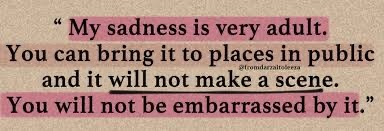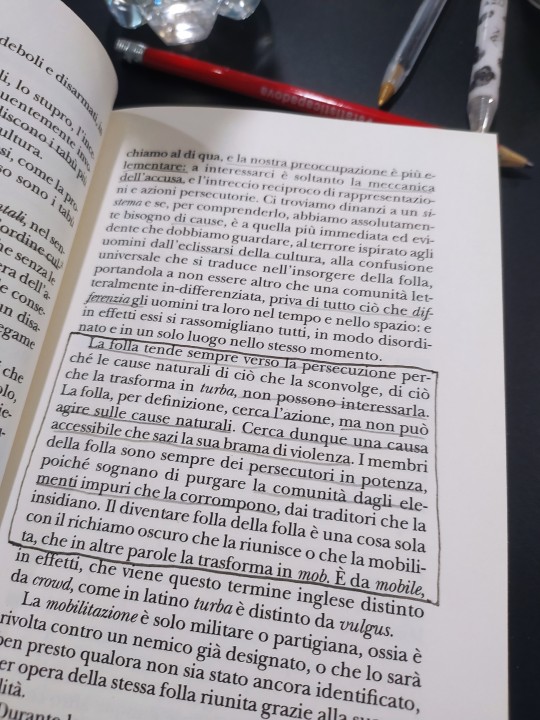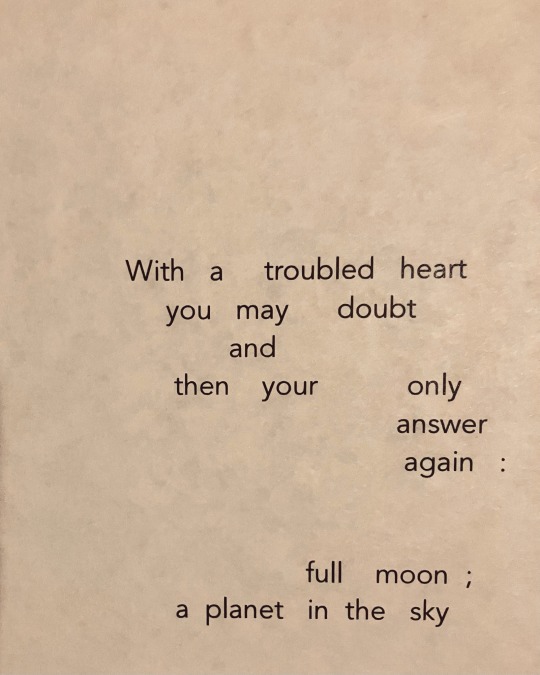#contemporary literature & philosophy
Text
Eine Blume auf dem Weg.

"The privilege of having a love, of finding meaning in life through caring, the same trust promotes the development of the same love and the same feelings and makes you look like who you really are."
— Juan Francisco Palencia.
#writers on tumblr#spilled ink#attempt at poetic action#juan francisco palencia#from mexico to the universe#winter 2024#Eine Blume auf dem Weg.#writerblr#light academia#love poem#reflexions of my life#feelings#writing#new poets society#words from the bottom of the heart#life philosophy#poets on tumblr#contemporary literature#impressions#imagines#vitruvio#love quote of the day#latin soul#contemporary philosophy portal#imp
366 notes
·
View notes
Text
I'm a pile of unfinished things, unsaid feelings, unthought thoughts, and unlived lives.
#quotes#words#personal expression#my thougts#reflections#poetry#introspection#writing#thoughts#escrita#writers on tumblr#phrases#frases#meus pensamentos#literature#reflection#feelings#self expression#philosophy#deep thoughts#writing community#writeblr#spilled ink#prose#writerslife#creative writing#poets on tumblr#contemporary poetry
167 notes
·
View notes
Text

ottessa moshfegh, lapvona


donna tartt, the secret history

margaret atwood, the handmaid’s tale

albert camus, the myth of sisyphus
#literature#quotes#ottessa moshfegh#lapvona#the secret history#tsh#donna tartt#margaret atwood#the handmaid's tale#contemporary literature#beauty#albert camus#the myth of sisyphus#philosophy#dark romanticism
491 notes
·
View notes
Text


Silas Melvin, Twenty / Megan Fernandes, Fabric in Tribeca
#poetry#quotes#literature quotes#contemporary literature#writing#web weaving#philosophy#existentialism#art#books#sad poetry#sad quotes#sadness#suffering
12 notes
·
View notes
Text
“Let one mold himself in accordance with the precepts he teaches…”.
Section 12: verse 3
Dhammapada (oldest surviving sayings attributed directly to the Shakyamuni Buddha).
(This version translated from the Pali Cannon by Ananda Maitreya).
#buddhism#spirituality#philosophy#poetry#writing#books#quotes#art#literature#art history#eastern historical studies#Buddhist philosophical studies#comparative religion#great authors#analysis of religion on contemporary culture#beautiful quotes#inspiring quotes#meditation
7 notes
·
View notes
Text

"Thoughts are the shadows of our feelings - always darker, emptier and simpler."
- Friedrich Nietzsche
Art by @EllenMarieArt
#literature#quote#reading#writing#book#author#writer#books#friedrich nietzsche#nietzsche#philosophy#art#artist#painting#contemporary art#contemporary painting#ellenmarieart#ellen marie#thoughts#shadow#feelings#dark#empty#simple
8 notes
·
View notes
Text

René Girard - Il Capro Espiatorio
#french literature#philosophy#rene girard#philosopher#modern philosophy#contemporary literature#contemporary philosophy#french language#french translation#italian literature#italian#italiano#history#literature#quotes#uni student#histoire#the lovers#protest#protesta#dissension#music#art#ancient literature#ancient history#latin literature#love#passion#university#current mood
2 notes
·
View notes
Text
Around me
A poetic and profound vision of human boredom and inertia that leads to the discovery of the universe and the constant transformation of existence.
#art#literature#poetry#poetrycommunity#poetrylovers#psychology#existentialism#life#philosophy#boredom#english literature#contemporary poetry
1 note
·
View note
Text
Ancora una volta - questa è la grande intuizione strategica di Kafka, la nuova cabala che egli prepara - la lotta non è contro Dio o la sovranità suprema (il conte Westwest, che non è mai realmente in questione nel romanzo), ma contro gli angeli, i messaggeri e i funzionari che sembrano rappresentarli. […] Non si tratta, dunque, con buona pace degli interpreti teologici - tanto ebrei che cristiani -, di un conflitto col divino, ma di un corpo a corpo con le menzogne degli uomini (o degli angeli) sul divino (prima di tutto quelle correnti nell'ambiente degli intellettuali ebreo-occidentali, cui egli appartiene). Sono i loro confini, le separazioni e le barriere che essi hanno stabilito fra gli uomini, e fra gli uomini e il divino, che l'agrimensore vuole mettere in questione.
Giorgio Agamben su Il Castello (1926) di Franz Kafka; in Nudità, G. Agamben, 2009
#giorgio agamben#franz kafka#Das Schloss#il castello#nudità#philosophy#german literature#literature#literary criticism#contemporary literature#art#book quotes#mailmiocuoredipietratremaancora
1 note
·
View note
Note
apart from your oeuvre, what are novels or nonfiction works that capture the "now"
I'm not a dedicated enough reader of my exact contemporaries to know. As far as mainstream fiction, I can renew my recommendations of Leave Society and My Year of Rest and Relaxation. I like Matt Gasda's drama, as well as the one novel of his I read (The Blue Period). Honor Levy had promise—where's she gone? I still need to at least try Stephanie LaCava, Madeline Cash. Half a decade ago, I liked The City of Folding Faces, whose author seems to have given up literature for medicine. People are pointing to Houellebecq's Submission for the French crisis. Most of the more celebrated material in both the left-lib female corporate overworld and the hard-right male indie underworld—Oyler, Lockwood, Delicious Tacos, ZeroHPLovecraft—doesn't do it for me, is overly literal about what "now" means. Your question about nonfiction, though, raises an interesting point, one also true of fiction but maybe less visible in that context. Often, in new circumstances, we reach back to thinkers of the past whose insights into the present weren't visible until that very present arrived. This is why people are now taking late-20th-century figures like McLuhan, Foucault, Arendt (all of which I understand), and Girard (which I don't) as guides to the now. This effect of retro-causation in literary and philosophical history—of finding the living present in the dead past and the living past in the dead present—is why I'm skeptical of historicism, was skeptical of it when it was the academic left's method du jour for disabling the persistent relevance of canonical works and am skeptical now that the right wants to wield it against modernity, as here. The best work about now might be a century or two (or three or four) old. Hamlet is the first superfluous man of the post-patriarchy. We're only now understanding Hemingway. Or, to take another example, as long as America meaningfully is America, The Scarlet Letter may well remain the most relevant novel about American politics—or at least about the culture war within liberalism that America has in place of anything anybody else would call politics.
1 note
·
View note
Text
Jikan no Mukou,or The Other Side of Time: Tales for a Time Being and other Ghostly Experiences in Chinese and Japanese Literature. jikan no mukou,
Tales for a Time Being is a captivating and poignant novel written by Ruth Ozeki. The book has been praised for its intricate plot, vivid characters, and insightful commentary on cultural themes. In this review, I will explore the cultural elements, hidden motifs, and zeitgeist of the book while also drawing comparisons to Japanese and Chinese ghost stories from the 16th and 17th centuries.
The…

View On WordPress
#Anime and manga#banana yoshimoto#Contemporary Japanese literature#Geisha culture#Ghost stories in Japanese literature#haruki murakami#Japanese architecture#Japanese calligraphy#Japanese ceramics#Japanese cuisine#japanese culture#Japanese fashion#japanese folklore#japanese gardens#japanese history#japanese literature#japanese mythology#Japanese philosophy#Japanese pop culture#Japanese tea ceremony#Japanese traditional music#Kabuki theater#Kawaii culture#Noh theater#Sake#Samurai culture#shintoism#Tokyo fashion#Yoko Ogawa#Zen Buddhism
1 note
·
View note
Text
The same forever.

"Someday, someone will look at you with a light of love in their eyes that you have never found, they will look at you as if you were everything they have been pilgrimaging their whole life. If you get to feel it, it may be the love story in life you've been waiting for."
— Juan Francisco Palencia.
#attempt at poetic action#juan francisco palencia#from mexico to the universe#summer 2023#writers on tumblr#the same forever#spilled ink#she and me#words from the bottom of the heart#contemporary literature corner#quotable quotes#poets on tumblr#writing#love poem#reflexions of my life#impressions#feelings#life philosophy#imagines#new poets society#love quote of the day#may my words be with you#eine Blume auf dem Weg#and i love her#angelae strauss#berlin#love is a powerful and mystical mystery#amarillo texas#light academia
592 notes
·
View notes
Text
Free MIT online courses that sound interesting
Arts & Literature
Introduction to World Music
Reading Fiction
Literary Interpretation: Virginia Woolf's Shakespeare
Introduction to Photography
Foundations of Western Culture II: Renaissance to Modernity
Studies in Poetry - Briths Poetry and the Sciences of the Mind
Studies in Literary History: Modernism: From Nietzsche to Fellini
Screen Women: Body Narratives in Popular American Film
Studies in Poetry: "What's the Use of Beauty"
Queer Cinema and Visual Culture
Monteverdi to Mozart: 1600 - 1800
Writing and Experience: Reading and Writing Autobiography
Advanced Topics in Hispanic Literature and Film: The Films of Luis Buñel
Major Authors: Rewriting Genesis: "Paradise Lost" and Twentieth-Century Fantasy
Arthurian Literature and Celtic Colonization
Contemporary Literature: Britsh Novel Now
Studies in Poetry: 20th Century Irish Poetry: The Shadow of W. B. Yeats
Writing About Literature: Writing About Love
Introduction to European and Latin American Fiction: Great Books On The Page and On The Screen
Popular Culture and Narrative: Use and Abuse of the Fairy Tale
Victorian Literature and Culture
Reading Poetry
English Renaissance Drama: Theatre and Society in the Age of Shakespeare
Introduction to Fiction
International Woman's Voice
Major Authors: Oscar Wilde and the "90's"
Prizewinners: Nobelistas
American Authors: American Women Authors
Shakespeare, Film and Media
Japanese Literature and Cinema
Woman's Novels: A Weekly Book Club
Classics of Chinese Literature
Major English Novels
Topics in South Asia Literature and Culture
Introduction to Literary Theory
History & Social Studies
American Classics
The Middle East in the 20th Century
Africa and the Politics of Knowledge
The Rise of Modern Science
European Imperialism in the 19th and 20th Century
Philosophy of Love
Human Rights: At Home and Abroad
The Nature of Creativity
Introduction to Comparative Politics
Riots, Rebellions, Revolutions
Introduction to the History of Technology
Ancient Philosophy
Youth Political Participation
#studyblr#study resources#dark academia#light academia#chaotic academia#romantic academia#adhd academia#studyblr brazil#literature#art academia#mit#free courses#study#collegeblr#studyblr college
1K notes
·
View notes
Text
His ignorance was as remarkable as his knowledge. Of contemporary literature, philosophy and politics he appeared to know next to nothing. Upon my quoting Thomas Carlyle, he inquired in the naivest way who he might be and what he had done.
THIS IS SO FUCKING FUNNY
oh PLEASE tell me modern adaptions take full advantage of this. Just stops a conversation in its tracks to be like “what’s a mickey mouse…?” or “you say that as if I should know who Stephen King is…”
583 notes
·
View notes
Text

Excerpt from An Interesting Book— more at AnInterestingBook.com
#spirituality#literature#modern#American#art#contemporary literature#writing#writers#writers of tumblr#meditation#buddhism#philosophy#poetry#zen#moon#melancholia#searching#words#beautiful words#sacred#yoga#wisdom#quotes#good books#good reads#reading
7 notes
·
View notes
Note
What are the specific references to real-world occultism you've found in Cultist Simulator? The paralell nature of the Secret Histories feels like a parody of Theosophical perennialism, and the entire thing about the Carapace Cross and FIve Creations could be read as a parody of Blavatsky's Root Races. There's also obvously Something Alchemical going on with the entire deal of gods shattering and swallowing the Sun, as well as the entire deal with the Watchman and Egg Unhatching, and something about the Long have always reminded me of Bergier's last meeting with Fulcanelli. Is there anything more than that? Most of the rest seems to be parody/commentary on the general pop-cultural Lovecraftian fare
The shattering the sun is alchemical but it's mostly gnostic. The hours are Aeons/Archons.
The watchman and the egg Unhatching is a direct reference to Orphism. Specifically the orphic creation myth and the god Phanes.
You gotta understand that Lovecraft's mythos is in direct conversation with Blavatsky and theosophy. Lovecraft's fiction might as well be contemporary occult philosophy.
There's also a lot of commentary on mystical literature. There are clear references to Gnostic mysticism, Merkava/Hekhalot literature, Enochian watchtowers and Aethyrs, even several references to Vision and the Voice (one of Crowleys mystical work.)
237 notes
·
View notes